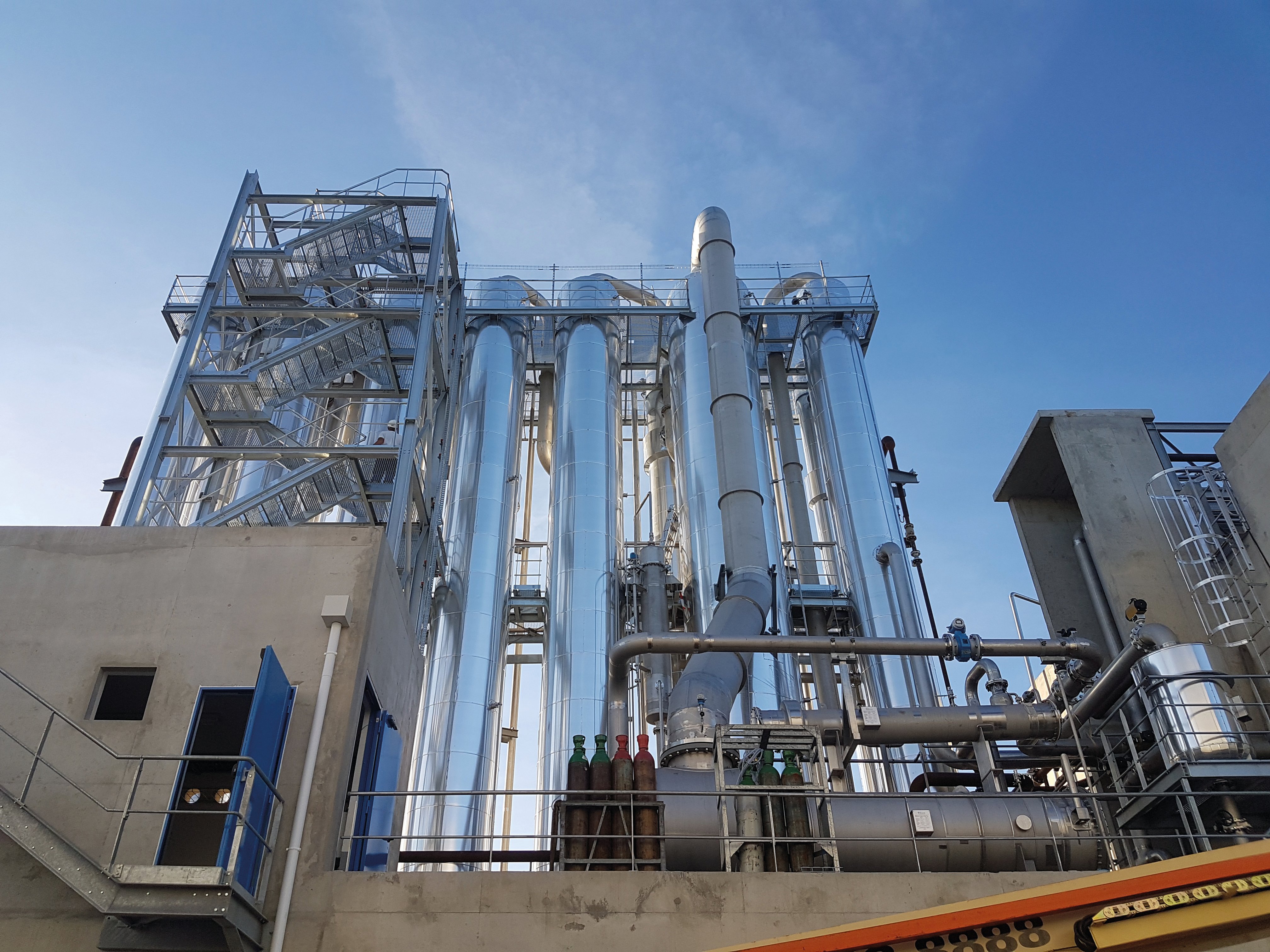Multiple Effect Evaporation Plants
Home
- / GIG Karasek Portfolio Overview
- / Multiple Effect Evaporation Plants
Energy efficiency with high evaporation rates
In multi-stage evaporation plants, the vapor from the liquid medium is used to heat the subsequent stages. This significantly reduces the use of primary steam, allowing the plant to operate in a cost- and energy-efficient manner.
In-house production
GIG Karasek manufactures its key components and special high-pressure equipment in Austria. In Gloggnitz, we focus on our falling-film evaporators and lamella production.

@ GIG Karasek
GIG Karasek has been a leading provider of the following falling-film concepts for years:
Falling-film - multiple-effect evaporation
Forced and natural circulation multi-stage evaporation
Rising film multi-stage evaporation
Functional principle
While the first evaporation stage is heated with live steam, vapor from the previous stage is used to heat the heating surfaces in the subsequent stages. As the number of effects increases, the specific live steam input gets reduced.
The number of stages usually depends on the specified temperature effects. The temperature sensitivity of the medium, the maximum available heating steam pressure, and the cooling water temperature are further important parameters.
Areas of application
PULP INDUSTRY
-
Concentration of sulfite & sulfate liquor
-
Concentration of pulp for pulp production for the regenerated fiber industry
-
Concentration of lignosulfonates
-
Concentration of xylose
-
Concentration of bleaching water
-
Recovery of spinning bath solutions from the fiber industry
GENERAL APPLICATION AREAS
-
Recovery of solvents and alcohols
-
Separation of water, solvents, alcohols and more
-
Recovery of recylables
-
Volumereduction of liquid-liquid-mixtures
-
Separation of multi-substance mixtures
OTHER INDUSTRIAL APPLICATIONS
-
Starchindustry
-
Sugarindustry
-
Saltworks
-
Wastewater
-
Chemical Industry
-
Pharmaceutical Industry

Visit our Newsroom!
Here you can find the latest NEWS, our EVENT CALENDAR or further INSIGHTS featuring our key topics.





